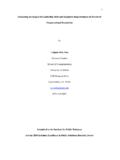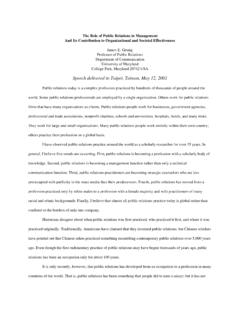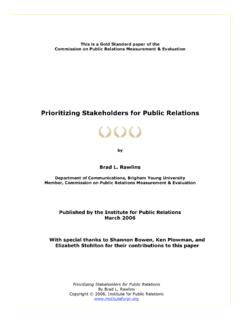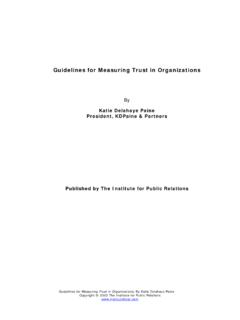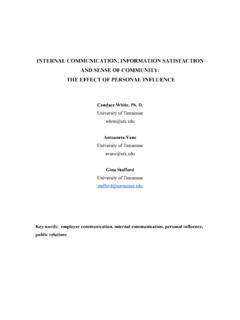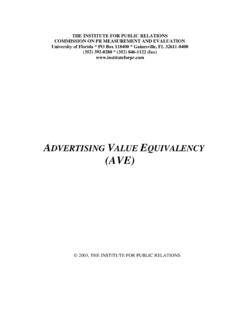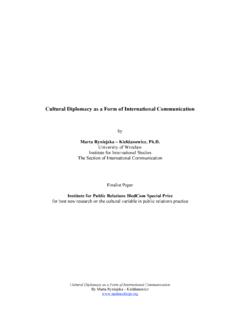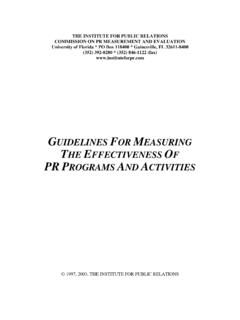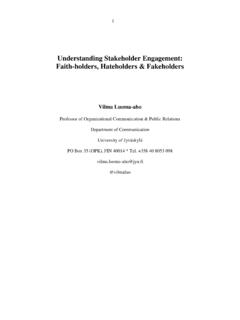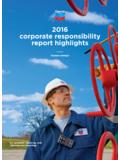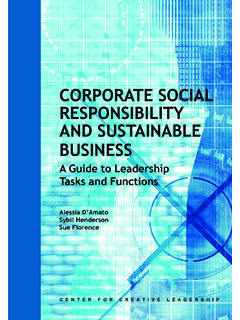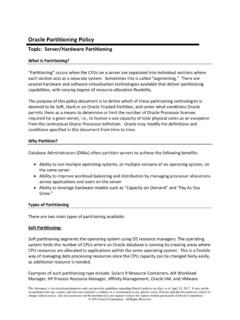Transcription of The Toyota recall crisis: Media impact on Toyota’s ...
1 The Toyota recall crisis : Media impact on Toyota 's corporate brand reputation Case study submitted for the 2011 Jack Felton Golden Ruler Award September 2011. Institute for Public Relations, 2011. Table of Contents 1. 2. Research program ..2 Introduction and situation Predicting public opinion from the news Media ..3 Agenda setting theory ..3 The ideodynamic Research questions ..7 corporate brand reputation data ..7 Media data ..8 Sentiment 3. Discussion ..14 4. Implications for public relations 5. 6. Appendix I: Figures ..18 7. Appendix II: Timeline of the Toyota recall crisis ..24 8. Appendix III: Media 9. Appendix IV: Additional discussion of the limits of the Media sample.
2 29 Page 2. 1. Summary Toyota , a company that built a world-class corporate brand reputation based on quality, manufacturing and design excellence, reliability, and customer focus, faced a major threat to its corporate brand reputation in 2009-2010 due to quality issues and recalls. This research uses a mathematical model of the impact of persuasive information on opinion formation to show how Toyota 's corporate reputation, as measured by surveys, can be directly predicted by document sentiment in several Media channels newspapers, online news, AP. newswire, blogs, and forums for the 15 month period from January 1, 2009 through March 31, 2011.
3 Model performance was high for newspapers (R2=.79), blogs (R2=.75), forums (R2=.82), and online news (R2=.75). An unweighted all Media model was most successful (R2=.84). Information favorable to Toyota is about twice as persuasive as unfavorable information. Blogs appear to be a leading indicator of negative issues, yet have limited impact on Toyota 's corporate reputation at the national level. It is only when the recall issues hit the mass Media that Toyota 's corporate reputation shows significant movement. Further, the research suggests that any representative sample of Media outlets can be used to gauge opinion, and that automated sentiment scoring is sufficient.
4 This research breaks new ground by operationalizing a statistically rigorous, truly predictive mathematical model grounded in accepted communications and cognitive psychology theory directly linking Media outputs to desired outcomes. This action-oriented model relies on data companies typically have, and can be applied cost-effectively in many areas of public relations. 2. Research program Introduction and situation analysis Toyota built a world-class corporate brand reputation based on its commitment to quality, reliability, continuous improvement, customer focus, and excellence in design and manufacturing (Liker, 2004; Quelch, Knoop & Johnson, 2010; Spear, 2004; Stewart & Raman, 2007).
5 Toyota 's reputation brought many benefits including market share, customer loyalty, and financial strength. According to Quelch et al (2010) and Steinmetz (2010), Toyota 's rapid growth put strains on design, engineering, and manufacturing leading to a succession of quality issues and recalls beginning in 2003 (see Appendix II: Timeline of the Toyota recall crisis ). National attention began to focus on Toyota 's quality problems with the release on September 10, 2009 of the 911 call audio of the crash on August 28, 2009, due to uncontrollable acceleration, of a car driven by an off-duty California highway patrol office resulting in the deaths of the officer and his family.
6 This incident led to the recall of million vehicles in the on September 29, 2009 due to floor mat problems associated with sticking accelerator These articles first appeared in the May 2011 issue of PR Tactics Reprinted with permission of the Public Relations Society of America ( ). Page 3. pedals. The serious nature of Toyota 's problems grabbed national attention in late January and early February 2010 as an additional million vehicles were recalled for sticking accelerator pedals, Toyota suspended sales of eight models in North America, Toyota expanded recalls to Europe and China, Toyota shut manufacturing plants, and Toyota President and CEO Akio Toyoda apologized for the car recalls.
7 A third recall involved a company bestseller, the Prius Hybrid, for braking problems. Recalls totaled about eight million vehicles worldwide over 2009. and 2010, including six million in the Subsequently, the Department of Transportation and the National Highway Transportation Safety Board increased scrutiny of Toyota . Congressional hearings were held in March 2010. Toyota 's strong corporate brand reputation had buffered the company at the start of the crisis (Jones, 2010), however Toyota 's responses were seen as inadequate and began to strain the trust of the public, car buyers, regulators, and government officials. Toyota vehicle sales in the fell 16% in January 2010 and in February compared to the same months in 2009.
8 Toyota shares lost through February 23, 2010 at a time when the Dow Jones Industrial Average lost (Quelch et al, 2010). The Toyota crisis presents a case to examine the role of Media coverage including newspapers, online news, blogs, and forums in shaping corporate reputation. This paper uses the a mathematical model of the impact of persuasive information on shaping opinions (Fan, 1988; Fan & Cook, 2003) to show that Toyota 's corporate brand reputation, as measured by public opinion surveys, can be predicted directly by Media data. Predicting public opinion from the news Media Agenda setting theory There has long been an interest in the relationship between the Media and public opinion.
9 Agenda-setting theory (see McCombs, 2004 and Scheufele & Tewksbury, 2007) has been one of the most prominent theoretical and research approaches to this question. The core proposition of agenda-setting theory is that the prominence of elements in the news influences the prominence of those elements among the public (Carroll & McCombs, 2003). The mass Media form the only conduit for persuasive information flow that is rapid and extensive enough to transmit the cues that can persuade the public and thus shape public opinion about companies, brands, and issues. Originally, agenda setting theory focused on how the Media give prominence to stories and issues thereby telling the population what to think about (first level agenda-setting theory).
10 However, the theory has been extended to a second level where the Media also can change public preferences by providing cues individuals use to understand, evaluate, and respond to events and issues. The Media influence the information individuals have top-of-mind when they make judgments by temporarily increasing the accessibility of knowledge units in the memory of an individual, which makes it more likely that these knowledge units are used in the These articles first appeared in the May 2011 issue of PR Tactics Reprinted with permission of the Public Relations Society of America ( ). Page 4. reception, interpretation, and judgment of events and issues.
